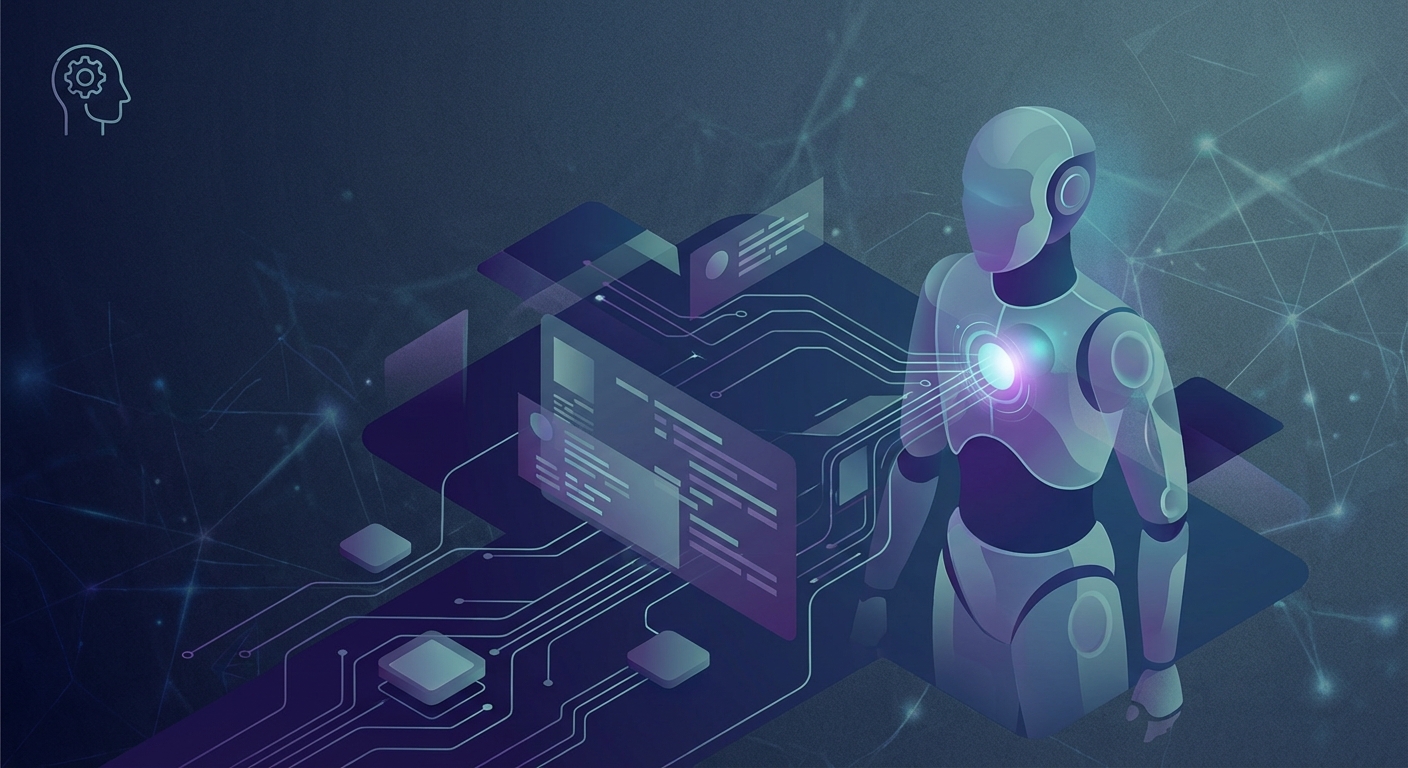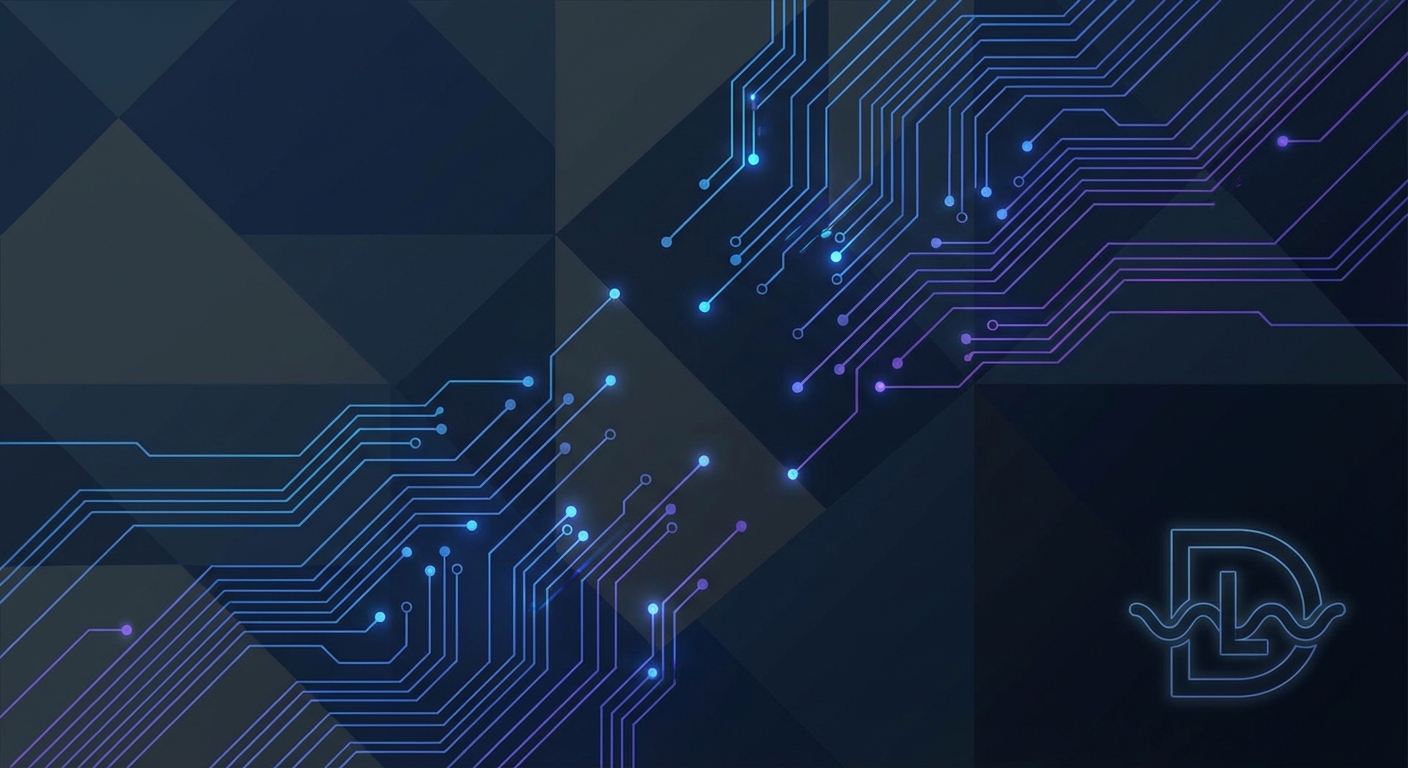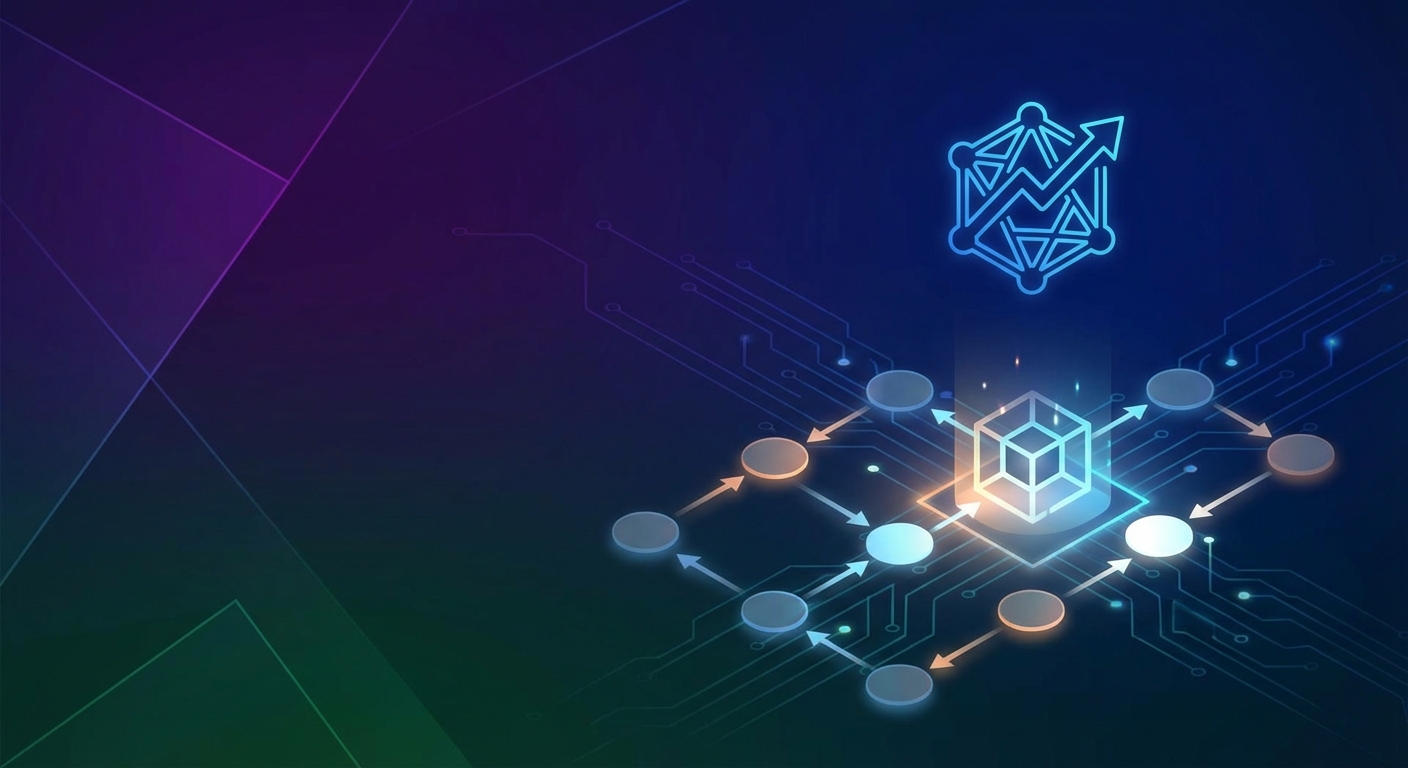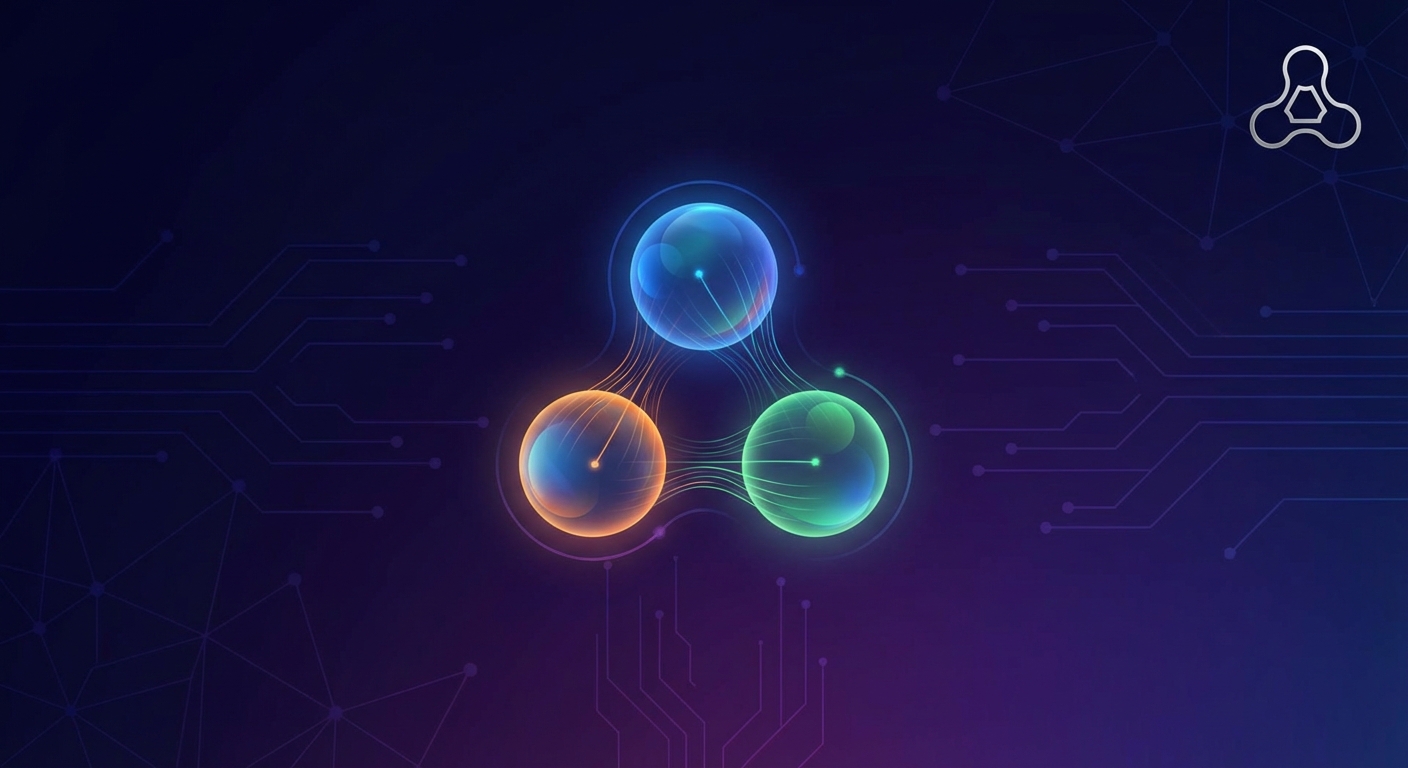AI Agents: Definition and Their Impact on Business
TL;DR
- This article dives into the world of AI agents, explaining what they are and how they're changing the game for businesses. Covering their definition, how they work, and the real-world impact they're having across different industries, from marketing to customer service and operations. We'll also touch on the challenges and future trends.
Defining AI Agents: What Are They?
Okay, so you're asking "What are ai agents?" It's kinda like asking what a car is when you've only ever seen horses. Buckle up, because this is gonna be a wild ride.
Autonomy is key, right? An ai agent isn't just some script you trigger. It needs to do its thing without you holding it's hand every step of the way. Think about self-driving trucks optimizing delivery routes, reacting to traffic in real-time. Copilots, like those that assist with coding or writing, help but they don't act completely independently; they're more like super-powered assistants that still need your direction for the big stuff. Autonomous ai agents, on the other hand, can make their own decisions and execute multi-step plans, even detecting and fixing errors along the way.
They gotta observe. These things are constantly taking in info from sensors, databases, user input – whatever's around. It's like those algorithms that monitor social media for emerging trends or sentiment analysis in customer service, constantly adjusting what they do based on what they see.
Then there's planning & decision-making. Ai agents use algorithms and ai models to figure out what to do next. For example, a virtual assistant scheduling meetings, but also prioritizing tasks based on deadlines, attendees, and locations.
It ain't just talk! These things act. They do stuff, initiating workflows, not just responding to questions. An ai agent in a manufacturing plant adjusting production based on real-time demand or predictive maintenance in energy sector, autonomously scheduling repairs.
Oh, and Adaptability is super important. Ai agents learn over time, improving with experience. It's like those fraud detection systems in finance continuously refining their detection algorithms based on new patterns.
See, ai agents, is more than just simple scripts – they actually reason and plan. Traditional automation? That's predetermined rules. Ai agents? They adapt. Think about it, a traditional system in a warehouse follows set routes, always going the same way. An ai agent, though, can adjust to unexpected obstacles, find the fastest path around them, and even coordinate with other agents to avoid collisions and optimize overall flow.
According to BCG, AI agents use tools to accomplish goals and decide when to access internal or external systems on a user’s behalf.
Now that we understand what AI agents are, let's explore the fundamental cycle that drives their operation.
How AI Agents Work: The Observe-Plan-Act Cycle
Alright, so how do these ai Agents actually do what they do? It's not magic, even if it feels like it sometimes. The secret sauce is this "Observe-Plan-Act" cycle. Sounds simple, but it's surprisingly powerful.
Observe: Gathering Intel. First off, ai agents gotta see what's going on. They're constantly slurping up data from every possible source – user input, sensors scattered around a factory floor, key performance metrics from your crm, you name it. And it's not just about grabbing the data. It's like, remembering what's happened before. This memory module gives 'em context, so they don't act like total newbies every single time. For instance, if an agent has previously learned that a particular customer prefers email communication, it’ll retain that information and use it to inform its next interaction, rather than asking for their preferred contact method again.
Plan: Making a Game Plan. Next, they gotta figure out what to do with all that info. This is where those fancy large language models (llms) comes in. They're basically the agent's brain, helping it evaluate options, prioritize tasks, and make a plan based on what it knows about the goals, the context, and its own memory. It's like a logistics ai agent figuring out the best delivery route, taking into account traffic, weather, and even that one street that's always under construction, you know? The LLM processes these inputs—like real-time traffic data, weather forecasts, and known road closures—to calculate the most efficient route, perhaps even suggesting alternative times if severe weather is predicted.
Act: Putting the Plan into Motion. Finally, it's showtime. The ai agent uses apis and other system integrations to actually do something. That might mean firing off an email, tweaking a setting in a software program, or even delegating tasks to other ai agents. And if it's not sure about something? It might even ask a human for clarification – kinda like a really smart intern. An agent might initiate a human clarification request when it encounters a situation with a low confidence score, or when its planned action could have significant negative consequences, ensuring a human expert can provide guidance before proceeding.
So, what's inside the box? Well, there's a few key ingredients that make these ai agents work.
Agent-Centric Interfaces: This is how the agent talks to the outside world. Think protocols and apis for chatting with users, pulling data from databases, or getting readings from sensors. These interfaces are "agent-centric" because they are designed to facilitate direct, autonomous interaction between the agent and various systems, allowing it to initiate actions and gather information without constant human prompting, unlike traditional interfaces that typically require explicit user commands. For example, an agent-centric interface might allow an ai agent to directly access and update inventory levels in a warehouse management system, or to trigger a customer service ticket based on an incoming support request, all without a human needing to manually intervene.
Memory Module: Gotta have a brain, right? Ai agents use both short-term and long-term memory to keep track of what's going on. Short-term is for recent events and immediate context. Long-term is for factual knowledge, past conversations, and how tasks were done before.
Profile Module: This defines the agent's personality and purpose. What's its role? What are its goals? How's it supposed to behave?
Planning Module: This is where the magic happens. The planning module uses llms to take in observations, memory, and the agent's profile, and then assembles a plan of action.
Action Module: This is the agent's toolbox. Apis and system integrations that let it actually do stuff.
That's the gist of it! Next up, we'll get into the nitty-gritty of what ai agents actually do in the real world.
The Impact on Business: Transforming Industries
AI agents are revolutionizing business operations by automating complex tasks, enhancing decision-making, and personalizing customer experiences. They're not just about doing things faster; they're about doing things smarter.
First, it's good to know what's out there. There's a whole range of ai agents with different skills and ways of working. Some are built for consumers, like those chatbots that pop up on websites, while others are for enterprises, helping businesses run smoother. Think of them as two different leagues—same game, different stakes.
Then, you gotta decide if you need a virtual or embodied agent (or both!). Virtual agents handle software-based tasks, while embodied agents work in the real world, like robots and automated machines. Virtual agents can manage a wide array of tasks within digital environments, from automating routine data entry and generating reports to performing advanced analytics on large datasets, or even drafting complex legal documents. For example, an embodied agent in a warehouse might use robotic arms to pick and place items with precision, navigate complex shelving systems, or even perform intricate assembly tasks.
You also need to think about how much control you want. Do you want a human-in-the-loop (hitl) agent, where people are always checking in and making decisions? Or a human-out-of-the-loop (hotl) agent that does its thing independently?
Selecting the right AI agent means to consider how much oversight the ai will require.
Consider a manufacturing plant. You might have hotl agents running the assembly line, adjusting settings and fixing errors without human help. But for safety inspections, you'd probably want a hitl agent that flags issues for a human to review.
When selecting an ai agent, consider the environment it will be working in, and how it will be monitored. It is also important to determine the level of interaction between the ai agent and humans.
Choosing the right ai agent is crucial, and I suspect we'll be seeing more diverse applications of ai agents in the coming years.
Next, we'll dive into the data and technology aspects.
Challenges and Considerations
Okay, so you're thinking about ai agents – cool, but hold on, it ain't all sunshine and roses. Plenty of stuff to keep in mind, promise.
First off, we gotta talk ethics, right? These ai agents are making decisions, sometimes big ones.
- How do we make sure they aren't biased, leading to unfair outcomes? Think about it – if an ai agent is used for loan applications, is it unintentionally discriminating against certain groups?
- And who's accountable when things go wrong? If an ai agent messes up a medical diagnosis, who's responsible? It's not as simple as blaming the code. Potential frameworks for assigning accountability are still being developed, but they often involve a combination of developer responsibility, user oversight, and clear operational guidelines.
- We need some serious ethical guidelines and responsible design principles if we're not going to open a can of worms.
What's next? Data security, of course. This is a huge one for ai agents.
- Data Privacy: Ai agents often process vast amounts of sensitive personal and business data. Ensuring this data is handled in compliance with regulations like GDPR or CCPA is paramount. How do we prevent agents from inadvertently exposing private information?
- Protection of Sensitive Information: Beyond personal data, agents might access proprietary business information, financial records, or intellectual property. Securing this data from unauthorized access or leakage is critical.
- Securing Agent Communication and Data: The agents themselves need to be secured. This includes protecting their communication channels from interception and ensuring the integrity of the data they store and process. If an agent's internal data is compromised, it could lead to widespread issues.
- Vulnerability to Attacks: Like any software, ai agents can be vulnerable to cyberattacks. Malicious actors might try to manipulate an agent's decision-making, steal its data, or use it as an entry point into larger systems.
These security concerns aren't just technical hurdles; they're fundamental to building trust and ensuring the responsible deployment of ai agents.
Now that we've looked at the potential pitfalls, let's see where these agents are actually making a difference.
Real-World Applications: Examples Across Sectors
Alright, let's dive into where ai agents are actually being used, 'cause it’s not just sci-fi anymore. Think of it like this: remember when everyone was hyped about self-driving cars? Ai agents are kinda the same, but for business.
So, where's the action at?
Healthcare's Getting a Boost: Imagine ai agents handling clinical paperwork, freeing up doctors to, you know, actually see patients. They're also helping improve diagnostic accuracy and efficiency. For example, an ai agent might analyze thousands of medical images, cross-referencing them with a patient's history and the latest research, to flag potential anomalies that a human radiologist might miss, leading to earlier and more accurate diagnoses.
Finance is Getting Smarter (and Hopefully Less Shady): From intelligent banking assistants helping you manage your money, to ai agents catching fraud and making sure everyone's following the rules. The "making sure everyone's following the rules" part involves agents monitoring transactions for suspicious activity that might violate anti-money laundering (AML) regulations, or ensuring compliance with trading protocols and reporting requirements.
Manufacturing is Becoming a Symphony of Robots: Think assembly lines that practically run themselves, ai agents doing quality control better than any human, and robots doing all the boring, repetitive stuff. They can perform quality control better than humans because of their consistency, speed, and ability to detect microscopic flaws or subtle deviations that are imperceptible to the human eye.
Supply Chains Are Getting a Brain: Ai agents are helping manage inventory and predict demand. For instance, an ai agent might analyze historical sales data, current market trends, weather patterns, and even economic indicators to forecast demand for a specific product, allowing businesses to optimize inventory levels and avoid stockouts or overstocking.
These applications show the power of ai agents to automate, optimize, and enhance operations across various industries.
So, what's next? Well, it's all about diving into the data and figuring out how to make these agents even better.
Data and Technology Aspects
Before we look too far into the future, it's worth touching on the nuts and bolts—the data and technology that make ai agents tick. It’s not just about the fancy algorithms; it’s the foundation they’re built on.
First off, data. Ai agents are hungry for it. The quality, quantity, and accessibility of data are absolutely critical. Think of it as fuel. If you feed an agent bad or insufficient data, you're gonna get bad or insufficient results. This means organizations need robust data pipelines, effective data governance, and strategies for handling everything from structured databases to unstructured text and images.
Then there's the technology stack. This includes the underlying infrastructure – cloud computing, powerful processors (like gpus), and specialized hardware. It also involves the software frameworks and libraries that enable the development and deployment of these agents. We're talking about things like machine learning platforms, natural language processing (nlp) tools, and robust api management systems that allow agents to interact with other software and services.
The integration of these technologies is key. It's not enough to have great data and powerful tech; they need to work together seamlessly to allow agents to observe, plan, and act effectively.
The Future of AI Agents: Trends and Predictions
Okay, so ai agents, huh? Feels like yesterday we were all just trying to figure out cloud computing. Now, it's all about giving ai autonomy.
What does the future actually hold? Well, think about it. Ai agents becoming more autonomous isn't just a tech dream; it can streamline workflows, improve decision-making, and boost productivity across sectors.
- Imagine healthcare systems using ai agents to personalize treatment plans, monitor patients remotely, and automate administrative tasks.
- Then there's retail, where ai agents could optimize supply chains, manage inventory, and provide personalized customer experiences.
- Don't forget finance, where ai agents could detect fraud, assess risk, and manage investments.
These agents will need tools to manage them. Think process intelligence platforms that act as a digital twin, you know? These platforms will provide a real-time, virtual replica of business processes, allowing for detailed monitoring, simulation, and optimization. This digital twin capability is crucial for future ai agents because it gives them a comprehensive understanding of the operational environment, enabling them to make more informed decisions, predict potential issues, and proactively manage complex workflows. Essentially, the process intelligence platform acts as a sophisticated control center and learning environment for these advanced agents.
Conclusion
So, we've taken a pretty deep dive into the world of AI agents, from what they are to how they work, their impact on business, and where they're headed. We've seen that these aren't just fancy chatbots; they're sophisticated systems capable of observing, planning, and acting autonomously to achieve goals.
The potential for AI agents to transform industries is immense, offering increased efficiency, better decision-making, and personalized experiences. However, as we've discussed, this power comes with significant challenges, particularly around ethics and data security, which demand careful consideration and robust solutions.
As AI agents continue to evolve, becoming more integrated into our daily lives and business operations, understanding their capabilities and limitations will be key to harnessing their full potential responsibly. The future looks exciting, but it's one we need to build with intention and foresight.





